Description
In this revised and updated edition of the bestselling Eat, Drink, and Be Healthy, Dr. Walter Willett, for twenty-five years chair of the renowned Department of Nutrition at the Harvard T.H. Chan School of Public Health and Professor of Medicine at Harvard Medical School, draws on cutting-edge research to explain what the USDA guidelines have gotten wrong—and how you can eat right.
There’s an ever-growing body of evidence supporting the relatively simple principles behind healthy eating. Yet the public seems to be more confused than ever about what to eat. The never-ending promotion of celebrity and other fad diets gets in the way of choosing a diet that is healthy for both you and the planet that we all share.
So forget popular diets and food trends. Based on information gleaned from the acclaimed Nurses’ Health Study and Health Professionals Study, which have tracked the health and eating habits of thousands of women and men for more than thirty years, as well as other groundbreaking nutrition research, this revised and updated edition of Eat, Drink, and Be Healthy provides solid recommendations for eating healthfully and living better and longer.
Dr. Willett offers eye-opening new research on choosing foods with the best types of carbohydrates, fats, and proteins, and the relative importance of various food groups and supplements. He clearly explains why controlling weight, after not smoking, is the single most important factor for a long, healthy life; why eating some types of fat is beneficial, and even necessary, for good health; how to choose wisely between different types carbohydrates; how to pick the right protein “packages”; and what fruits and vegetables—not juices!—fight disease. Dr. Willett also translates this essential information into simple, easy-to-follow menu plans and tasty recipes. Revised and updated, this new edition of Eat, Drink, and Be Healthy is an important resource for every family.
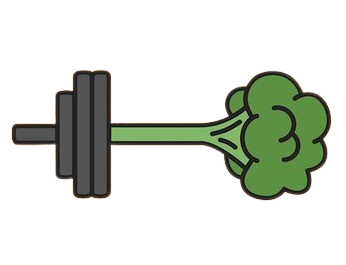
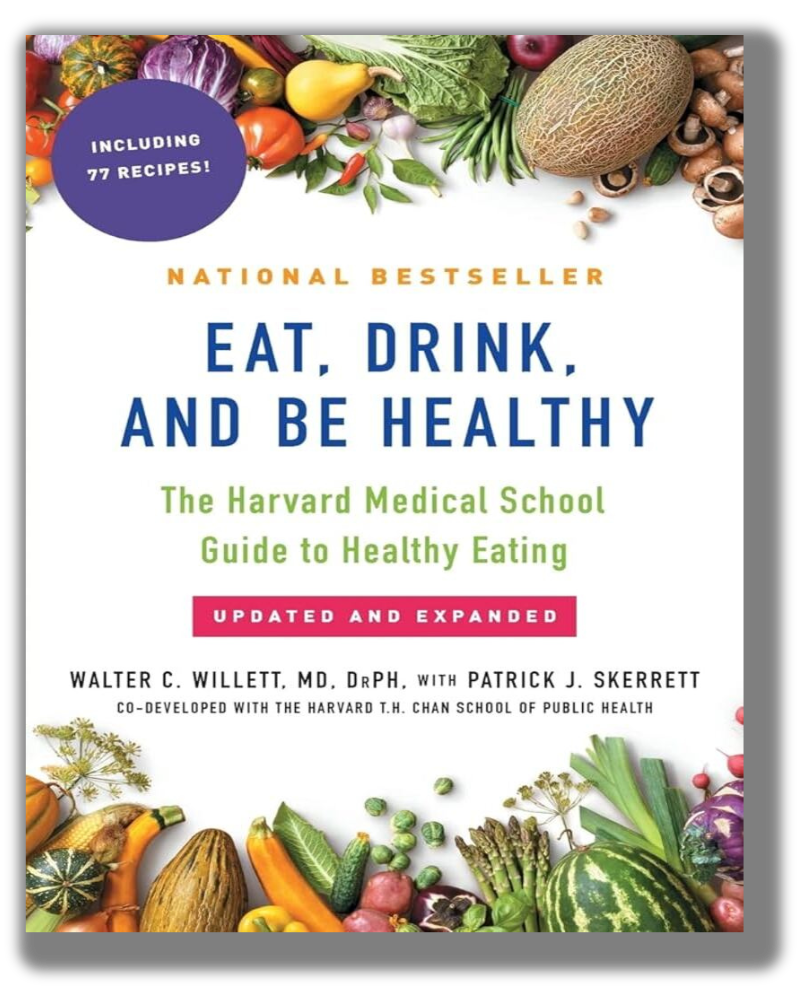
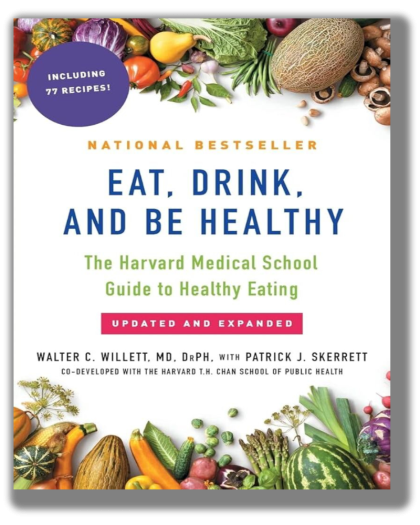
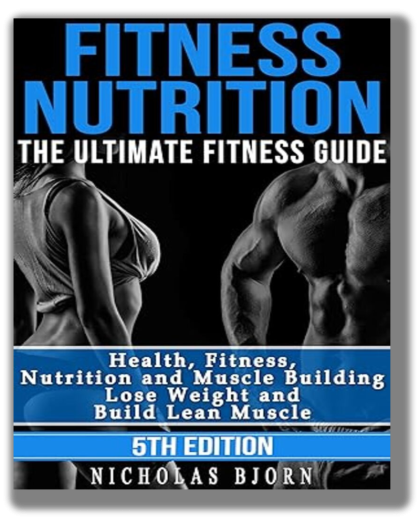
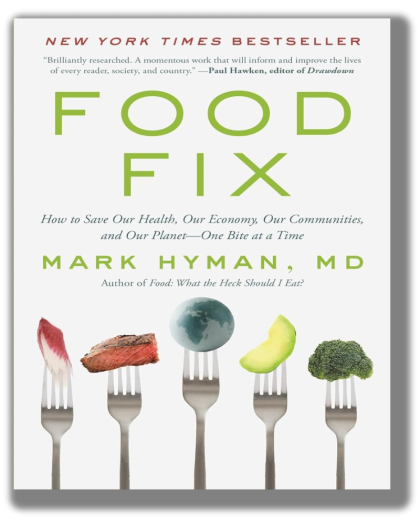
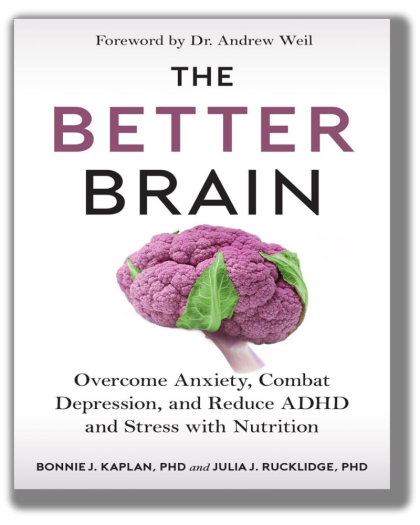
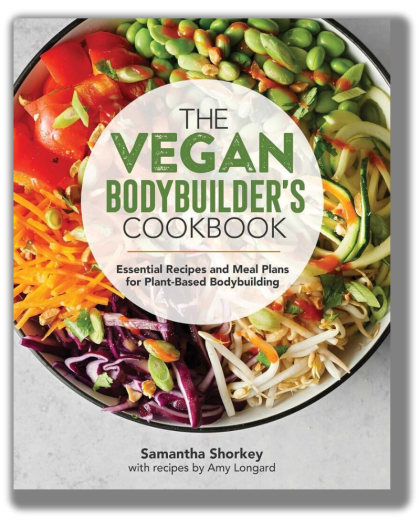
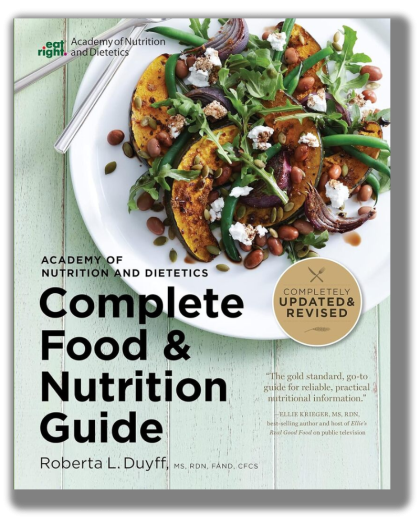
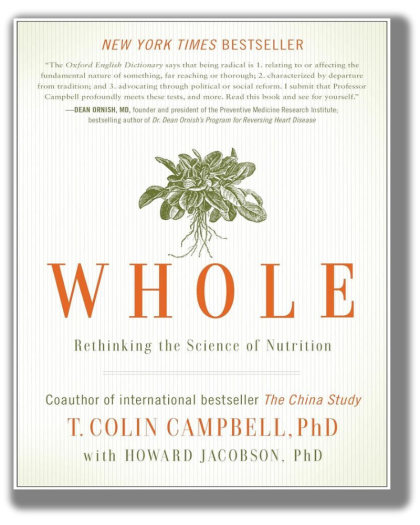
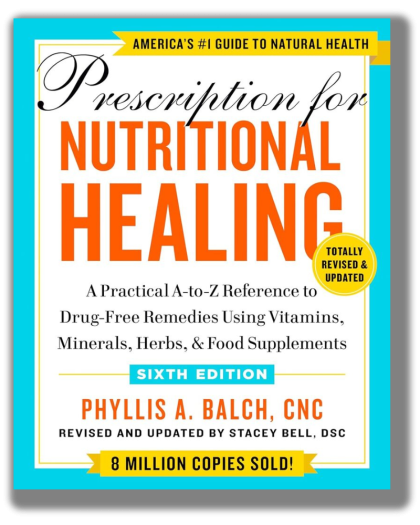
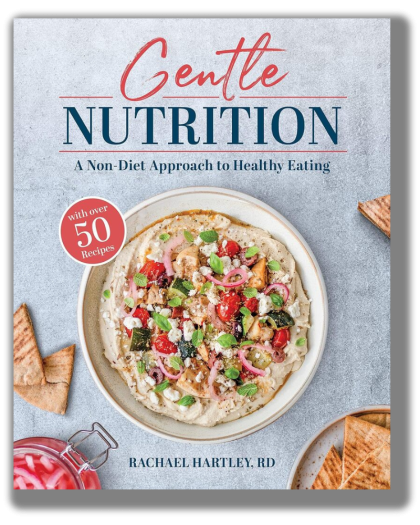
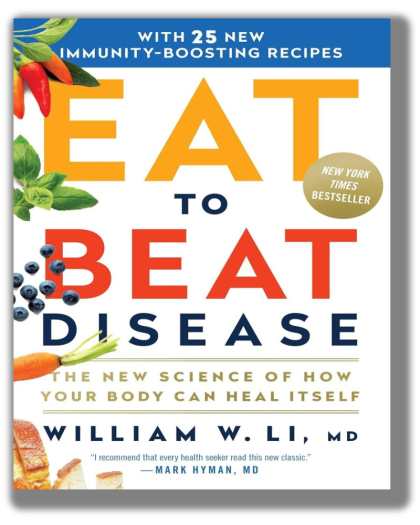
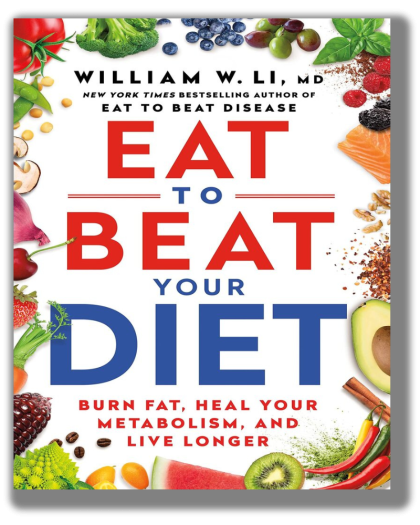
H. B. Faith (verified owner) –
Lots of good, practical information in here. The author offers an alternate to the USDA food pyramid, one that emphasizes whole-grain foods, healthy oils, lots of veggies; and de-emphasizes the convenience foods we’ve come to love — refined and processed carbs, hydrogenated oils, etc. He also stresses daily exercise and weight control, of course.
I enjoyed learning about the differences between the types of oils and how they affect the body. After reading the book, I felt challenged to do better (NOT guilt-ridden into the false solace found in snack food). I’ve switched over to brown rice, which is sooo much healthier, and whole-grain breads. That last one is tricky, by the way: the book points out that we need to carefully read labels to be sure the first ingredient is whole-grain flour (wheat, rye, whatever). A lot of the wheat breads out there are not as healthful as they’d like us to believe…
The book is a wealth of information and also offers sample menus and recipes, as well as suggestions for further reading. Some of the charts were eye-openers and can help for when planning future grocery lists.
At 185 pages (not counting recipes and other extras), this was a fast and easy read, but I took my time because there was so much ground covered. I highly recommend this book!
Eliot B. Muir (verified owner) –
A lot has been said about this book by reviewers who came before me, so I’ll keep it brief. Whether you are interested in dieting to lose weight or just want to be better informed about nutrition, this is THE BOOK to purchase. It is THE starting place. Willett uses the whole of the literature and research to meld the most up-to-date, most science-based diet planning and information available. Further, his diet is moldable to most people, without offering the usual “too-good-to-be-true” or “no pain, no gain” advice. This is the real stuff, where all so-called diet and nutrition books should start, but, as we all know, don’t.
I also recommend checking out the Harvard Health sites and newsletters as a follow-up to reading this book. There you will find sound advice, without having to wrangle with the emotional highs and lows that arrive with the press’ overbearing reporting of each single new study. The whole of research literature is always considered by Harvard Health — as it is in Willett’s book — not just the hyperbole surrounding the latest single study, as it often is in the press and in many other “nutrition books.”
Stoicman (verified owner) –
I tell my friends, if you don’t read this book, you are an idiot. Excellent, unbiased, statistical and fact based analysis of what foods are good and bad for you and why. Willett has a great ability to cut to what is really important for your health.
This book made me realize what foods were healthy and why, and I changed my diet for the better. One does not have to take all the suggestions, but for ten dollars and a little time you are gaining optionality on knowledge that is very powerful for your personal health. I wish everyone on this earth read this book.
Waterman Gap (verified owner) –
If you want to know what science says, this is the authoritative book. His most startling point: Rapid increases in blood sugar caused by eating refined carbohydrates and potatoes cause heart disease, diabetes, and obesity.
In general, he recommends eating a lot of vegetables, beans, and fruit, plus some good fats and lean protein. Dairy products should be limited to one to two servings per day. Refined carbs and potatoes should be avoided. Exercise is important.
The prescriptions are the same as the South Beach Diet, but he stops short of saying high blood sugar and the resulting high production of insulin definitely cause weight gain — he says they may.
If you are looking for a health book to give to a relative or friend, this is ideal. It’s clearly written, easy to understand, and the recommendations are safe and easy to follow.
P.S. Perhaps in a future book or study, Willett could explore the relationship between insulin and weight further. Maybe blood sugar levels, not calories, determine weight gain or loss. This would explain why the Chinese supposedly eat more calories than we do, yet weigh less (China Study). It would also explain why it’s possible to eat a low-fat, low-calorie diet high in refined carbs and be obese, while another person could be slim while eating more calories but fewer refined carbs. (This is not to say you could overeat and remain slim, since overeating anything, including low-carb foods, also causes blood sugar levels to rise.)
Barry J. Wythoff (verified owner) –
Books on dieting and nutrition are available in endless numbers (perhaps exceeded only by the number of cookbooks ;-)). The trouble is that 95% of such books are crap, being authored either by persons without the proper background for expertise or with a strong agenda aside from educating the reader, or often, both issues.
This book is authoritatively and objectively written by Dr. Willett and as such brings to the market a much needed *reliable* source of information.
It should be noted that this is *not* a diet book. Dr. Willett is a nutritional epidemiologist, and so true to form, he expounds on the known links between dietary choices, and various forms of disease, as they have been established over time by epidemiological studies. It’s also important to point out that Dr. Willett does not here describe the results of the latest study on this or that, and thank goodness, because he confines what he presents to associations that are based on solid evidence – that is, large, well designed, and multiple studies, and therefore, knowledge that can be relied upon. Where he does on occasion mention *apparent* epidemiological links that need further study to validate, he dutifully and carefully indicates that with caveats.
Dr. Willett also respects the reader – although this is written appropriately for a general audience, he nevertheless engages the reader with mechanistic explanations for why a dietary choice is associated with disease, if the mechanism is known, for example.
I was thankful that although the book is on dietary choices, he includes a chapter on weight control and exercise. While it could be considered to be offtopic, Dr. Willett is an MD/PhD, and rightfully includes this chapter because of the overriding strength of the epidemiological evidence for *these* lifestyle choices, as well as *what* to eat, keeping the big picture goal of patient health in mind.
All in all, I can’t say enough good about this book. If you care about your health, I can wholeheartedly recommend that you buy and study it thoughtfully, and implement his recommendations. I have been doing that, and have found that I feel better, and have been losing weight in terms of short term benefits. Of course the long term benefits of reduced risk for so many chronic disease patterns are at least as important in the end.
Dextra L. Suggs (verified owner) –
Eat, Drink and Be Healthy, by Dr. Walter Willet, has so many HOLY S*** passages in it, you may find yourself examining government supported dietary guidelines with a much needed microscope. The suggested seven healthy changes represent a rational approach to prolonged health: watch your weight, eat fewer bad fats and more good fats, eat fewer refined-grain carbohydrates and more whole-grain carbohydrates, choose healthier sources of protein, eat plenty of vegetables and fruit, BUT HOLD THE POTATOES, use alcohol in moderation, and take a multivitamin for insurance.
If you do nothing more than read the introduction you’ll have gone a long way to improving your health. For example, “Nutritionist and diet books alike often call the potato a perfect food….The venerable baked potato increases levels of blood sugar and insulin more quickly and to higher levels than an equal amount of calories from pure table sugar.” SAY WHAT?
While this next quote comes from Chapter 8, it’s my personal favorite, “Imagine dumping seven to nine teaspoons of sugar onto a bowl of cereal. Too sweet to eat? That’s how much sugar is in a twelve-ounce can of Coca-Cola, Pepsi, Orange Crush, or most other sugared soft drinks, and we drink the stuff by the gallon.” Think of that the next time you see someone sipping on a Big Gulp!
The evidence is all around us, our nations dietary habits have to change or we’re doomed. Dr. Willett’s, Eat, Drink and Be Healthy, is a must-read for anyone interested in long-term health and rational, well-balanced, dietary information.
Demetrius Abshire (verified owner) –
If you want an easy to read version of what you would find in the medical literature, this book is for you. The book offers great advice on how to improve the quality of one’s diet through such means as consuming whole grain foods, an abundance of fruits and vegetables, and exchanging trans and saturated fats for unsaturated ones. What I particularly enjoy about the book is that it does not emphasize only one factor to improve one’s diet. A truly good diet is built upon balance and diversity. This is a great book for anyone to read.
Alberto Vargas (verified owner) –
A family member urged me to get this since I supposedly do not eat healthy. Turns out I am doing OK according to this book 🙂
This book introduces a new food pyramid based on the latest information from several large scale nutrition and health studies. It dispels myths contained in the official food pyramid, low-fat and low-carb diets. It redefines good and bad fats, presents carbs based on glycemic index, and suggests different daily doses of vitamins in some cases than FDA daily recommendations. Some of these things may not be news to many readers – I did learn some interesting new facts (e.g. soy proteins not as great for you as thought earlier).
I like how the author puts weight management and daily physical activity as the basis of his new food pyramid. Also, his tone is calm and professional, and there are many references to authoritative scientific studies. When there is contradictory scientific evidence, esp. about some widely held belief (e.g. “eggs are bad for you”), he tells you so. At least a third of the book is taken up by recipes, which I found strange given the explanatory tone and content of the rest of the book.
Weaknesses of this book:
– does not individualize recommendations by gender, body type, race, etc
– does not address food combinations and interactions (e.g. for some people, fish and dairy do not work well together in the same meal, but stuff like that is not covered)
– does not really provide weight loss advice, even though he mentions obesity as a prevalent issue, explains BMI, etc
– rather generic at the end of the day
– font is annoyingly tiny (probably not author’s fault but makes it harder to read)
Overall, a good read to bring you up to speed on nutrition. However, if you are well read on this topic already, you will find this book too basic and redundant.
RM (verified owner) –
The book is easily readable, well organized and explained. The scientific evidence presented is solid.
I have some comments though.
I am unsure about how reliable is the recommendation of a daily multivitamin supplement. Recent scientific evidence suggests the opposite. Take a look at this 2009 paper: [..] title “Antioxidants prevent health-promoting effects of physical exercise in humans”. Don’t worry if you cannot access the full article just read the abstract. Apparently getting pills of anti-oxidants removes the benefits of physical activity in terms of natural reactions to a temporary oxidative process. I would love to hear the opinion of the author of this book about this study (which was published after this book). The author webpage, which is under the domain of his University, does not report any contact, otherwise I would have tried emailing him to ask if, considering this new published study, he still believes it is good to take daily supplements.
Also, I would have loved to read about probiotics, and products containing them. This IS a big chapter in nutrition and I do not consider a nutrition book complete without talking about probiotics products. They have big effect on the flora of the intestine and thus on the immune system. Which means they play big role in cancer prevention. This book should have mentioned them, how to eat them, the right products (such as kefir..)
Finally, another missing topic is how to cook things. It stresses the importance of certain foods such as vegetables but it does not take into account that often you can destroy all the good properties of a food by cooking it incorrectly. And it is absolutely not trivial to know how exactly something should be cooked. Some foods are better assimilated if raw, others if cooked. Some mentions to at least the most common foods is a must, and it is lacking in this book.
Dave (verified owner) –
Book came in pretty timely and it’s in fairly good shape. It looked like there was some bacteria on the back cover though which is a little gross. Either way, the book cost half a dollar and I can easily read all of the words. I’d buy from them again.
D.M. (verified owner) –
The recommendations are based on solid research and are essentially to eat the kind of Mediterranean diet that was eaten in Crete in the 50’s when they had the best longevity in the world. This diet is associated with lower rates of heart disease, cancer and diabetes. The main points are:
1) Eat very little sugar, refined grains, potatoes, red meat and dairy.
2) Replace these with olive and canola oil
3) Substitute whole grains for refined grains.
4) Get protein primarily from beans, nuts, poultry and fish.
5) Use alcohol in moderation
6) Take a multivitamin for insurance
7) Get regular moderate exercise
This is a good alternative to the USDA pyramid which is based on too much politics and not enough science. Reading about the research will help motivate you and having a copy of the book makes it easier to share the principles with people you care about. As a researcher, professor and chairman of nutrition at Harvard Medical School Dr. Willet is well qualified to write this book.
Giesele Bergmann (verified owner) –
This is the first “diet” book I’ve ever encountered that didn’t have a “You can only eat this on this day,” etc. approach to healthy eating. Basically, make most of your grains whole, your fats mono/polyunsaturated, and your exercise regular. It is mostly advice on how to shop smarter, read your nutrition labels, moderate your caloric intake in a healthy way, avoid spiking your blood sugar, and it includes a few recipes to introduce new types of food into your diet. Great book overall; it didn’t make me feel bad about myself or my eating habits, but rather encouraged minor changes for drastic health improvement. The book itself is a good read and includes several real clinical studies to prove his theories. I highly recommend this book for someone who is interested in a lifestyle change that won’t leave you missing out on your favorite foods.
M. Case (verified owner) –
My doctor told me about this book. I am finding it to be a guide that is easily understood, and better yet – simple to follow for someone attempting to change eating habits.
NaturalHorseman (verified owner) –
I love Eat Drink and Be Healthy. It provides a research data-based diet recommendation that you can use if you are a. trying to eat “healthy” so you can cut your likelihood of heart attack and stroke in half, or b. you are on a diet (I’m on South Beach) working to lose weight and want the real skinny behind some of their food positives (and the BS behind some of their negatives). It’s easy to skim because you can just read the summary at the end of each chapter, can read the headlines and first paragraph or read the whole da*n book as I did. I have “passed it forward” to several close friends. It’s also a great detailed companion to folks like me who got hooked on Michael Pollan’s “In Defense of Food” and wanted to get more detailed about “vegetables with a side of protein” model. The book’s Healthy Eating Pyramid is exactly that.
Read it and then buy a copy for each family member and friend who you think is at risk. Hopefully they will “pass it forward.”
discerning consumer (verified owner) –
This is one of the best books on nutrition I’ve read. As a physician with a Ph.D. in nutrition, I would highly recommend this book. Dr. Willett takes a very balanced view of the wide range of topics covered. Very practical advice that you can use in your day to day life but all very research based. Good references are included if you have a further interest in a topic area. No hype, just solid fact. I believe the book was done in 2005 and I hope they do a new addition soon but still found this one very valuable. I got the paperbook and wish I had purchased the hard copy (the print is a tad small for older eyes, darker rooms. This book was really well written and fun to read. Highly, highly recommend it.
Joan Liut (verified owner) –
I found this book to be a very solid approach to the subject of nutrition, grounded in good science and free of any extremist thinking that can make so many diet plans impossible to follow. It did a really great job of describing how scientific thinking goes back and forth, and how studies and recommendations are so frequently based on accomodations and politics. I would recommend it to just about everyone, with a few reservations:
1. As one reviewer stated, the book is ten years old (with a six year old revision), so it’s no longer cutting edge. Lots of what is said is all over the media, like the benefits of nuts. And much as I appreicated the discussion of overhyping calcium, there is more to dairy than just calcium and it’s quite possible that milk products may be much better than the author thought in 2000. Yogurt especially should be considered as a potential health food. None of this is a refection on the author, of course, but just the inevitable impact of age on a book of this sort.
2. Like so many books about food, the author is a bit sanguine about the difficulties of adopting a new diet. His diet plan is far less restrictive than some, but readers should still be prepared for just how much they will still crave foods like white bread and sweets. Far from being a social construct as the book suggests in one spot, the human preference for rich and highly refined foods is inborn and (I would speculate) based on the fact that such foods are simply easier to eat and digest.
3. My personal approach is to buy the most natural food I can under most circumstances. Much as it recommends whole foods like grains and nuts, the book does not really discourage use certain margarines and artificial sweeteners. I would generally avoid such things simply based on the past experience that many factory foods have turned out to have more problems than anticipated.
4. I would make more assertive use of supplements than the book recommends. I typically take 8 or 9 different tablets daily, including extra D and a B complex, and I think it is helpful.
When it comes to exercise, healthy eating and weight loss, there is no such thing as “easy”. There is such a thing as “possible”, and this author does a pretty good job of getting us thinking on that track.
wanderluster (verified owner) –
I thoroughly appreciated this book. It gave so much great info, from various study findings to info on the revised food pyramid (along with what is wrong with it). I have been interested in food/health for years now and it is really important to have solid science to back up my food choices. The aspect of the book I liked best, was that the information was presented, but it left the decision up to you. It is so important that people don’t just read something in a book and take it as gospel, but that they investigate, ask questions, and talk to their healthcare providers. If you want facts, not the latest fad diet, read this book.
Gabe (verified owner) –
This book should be mandatory reading for anybody who eats food (that would be ALL of us), and especially for my fellow residents of the United States, where we unforuntately suffer from what I might call “nutritional illiteracy”.
What makes this book great is that its purpose is NOT to promote a diet- its purpose is to inform the reader about nutrition. Willet does not have an agenda- he’s not trying to sell you on a diet, a line of supplements, snacks, or pills. He’s not trying to get you to subscribe to a program. He’s just trying to inform you about NUTRITION. In simple, easy to read language, he explains what happens inside of your body when you eat particular foods, and what the greater impact of that effect is in the long run. Generally speaking, the points that Willet makes are painfully obvious, once explained.
A perfect example of this is his clear explanation of how and why so many people with American, western pattern diets inflict diabetes upon themselves. I had always been told vague pieces of advice from well-meaning people who would say things like, “don’t eat too much sugar, or you’ll get diabetes” and “too much white bread/pasta/rice will give you diabetes”. Unfortunately, nobody could tell me HOW or WHY this was the case. Willet explains, in very simple terms, how different foods are absorbed at varying rates of speed within our bodies… there is some slightly more advanced science behind this, but basically refined foods (like refined sugar and enriched flour) break down too quickly, and force our insulin production to spike. The more frequently this is done, the worse off your body will be, and it creates a vicious cycle of insulin spiking (not to mention the hunger and fatigue that result from eating refined foods). Thanks to Willet’s clear explanations, I was finally able to understand what impact refined foods have on my body- and why I should stick to whole grains whenever possible.
Another fine example is how Willet points out that the Food Pyramid was created by the USDA, whose purpose is to protect the interests of American farmers… so why would you ever trust what they were telling you to eat?! Fortunately, the Food Pyramid has been done away with, but a lot of us grew up studying that cursed thing (I’m 32).
Finally, Willet puts into very clear terms that the single worst food you can ingest is refined sugar. Fat doesn’t make you fat… SUGAR does! But wait, you say… what about sugar substitutes? Does Willet address those? Aren’t they bad for you, too? Turns out they MIGHT be, but the existing body of evidence says no. Willet points out that nutritional science is always changing, because the research and data is ever growing- and he periodically revises his book to reflect that.
I keep this book close at hand, and use it as a reference. Whenever I’m wondering about a particular food, I look it up in the glossary and take a moment to educate myself. There is nothing more important to your health than the foods you eat, and as such, this book is an invaluable resource. I’m so glad I discovered it, and took the time to read it. It will positiviely affect my health and well being for the rest of my life 🙂
Dennis Carter (verified owner) –
Excellent book on how your body uses various vitamins, enzymes, and food to it’s advantage or disadvantage with a further explanation on what foods do. Other then that it basically says what we all really know and that is if you put a lot of the wrong food and fat in you, you will get fat!
David Record (verified owner) –
Then this is the book to embrace.
Take USDA’s nutritional advice…its carefully crafted to not offend its constituency, US agra-business. We should consider USDA advice clothed in a beneficial promotion of the priorities of US agra-business.
This book, on the other hand, comes from the team at Harvard School of Public Health, Nutrition Division and is based on epidemiological nutrition research.
Willett and his team are particularly potent, because they not only speak of food the sustenance, but food the biological system that it is, because not only are they medical epidemiologists and nutritionists, they’re food scientists.
The part about what are you going to believe and the different kinds of studies that are reported is worth paying close attention to, as it helps you sort out what’s worth embracing immediately, and what’s worth watching to see what future, corroborative studies find. It helps you weight what you hear. A very important skill to develop and something the media with the demands of filling inches and airwaves every day, hour and minute does a poor job at….because its not their job. They’re in the news business. You’re in the business of optimizing your health and the health of those you care about. And, weighting the input from nutritional research findings is extremely important to avoid chasing your tail, and possibly even hurting yourself and others who listen to what you have to say.
Enjoy this very lucid book that is also a useful reference, as is HSPH’s Nutrition Dept’s web site.
Jiang Xueqin (verified owner) –
The authors of “Eat, Drink, and Be Healthy” have taken a careful look at decades-worth of nutritional research data, and provided readers with practical advice on how to eat well: Eat lots of different variety and colors of fresh fruits and vegetables, make sure to get good fat and avoid bad fat (the saturated and transfat found in processed and fried fast foods), try to substitute animal protein with plant protein wherever possible, and take multivitamins as an insurance policy.
This is all good advice, but it’s merely an introduction to nutrition and doesn’t take into account different lifestyles. The authors are writing this book for a general audience, which often means people who sit in the office all day and gobble down their processed fast food in their fifteen-minute lunch breaks.
So some of the author’ advice should be taken with a grain of salt. For example, the authors caution that too much protein intake (their recommended daily dosage is 48 grams of protein) would cause acidity in the body, forcing the bones to release calcium to achieve homeostatis. But what about athletes and individuals who exercise regularly? Then it’s important to take protein supplements because one’s diet cannot supply all the protein that the body needs to grow the muscle cells.
Nevertheless, this is an excellent introduction to the food issues that most people face today.
Roger Coziol (verified owner) –
As anyone preoccupied by is health knows, finding the truth about diet is usually a disappointing and confusing endeavor. This is one of the merits of this book, where the Dr. Willett explains, in clear scientific terms, the important role various foods play in keeping us fit. As a result, the new healthy eating pyramid is an easy, day-to-day, guide to follow, that will allow you to stay in good health. More than just diets, however, the book also offers a more general guide, as a general way of living, that can be summarizes in three points: 1- eating less, reasonably, no fasting, 2- exercise, doing cardiovascular activity but also building muscles, but all in a way that is enjoyable to you, and 3- eating well (the pyramid), in great variety, again, in a way that is enjoyable to you. The failure for healthy people in our society to get and stay in shape depends on violating one of these 3 simple rules. The Dr. Willett also recommend to eat defensively, which is the only way how to survive in a society where the food industry is working against us (the goal is not to make people healthier but too make them buy your products). The eat, drink and be healthy formula then becomes equivalent to enjoy life, as it should be.
Bernd Zeller (verified owner) –
I would not have found this book and read it if a lovely medical professor from Europe would not have told me about it. I am glad she did. I highly recommend to get, read and follow it.
Alex Batiz Sanchez (verified owner) –
Willet does a good job explaining what we know and don’t yet know through scientific research. He also explains how to eat healthy without hot air. This could be a great book if only a clearer writing structure could be used. I got a sense of repetition and redundancy throughout the book. If you need a nutrition book, buy this one; but hopefully we’ll have much better and updated edition soon.
L. Harper (verified owner) –
The best ‘say everything you need to know’ book on the planet and believe me, I’ve read every nutrition and diet book written in the last 3 decades. The best discussion in this book is that we are mislead so often by the knee jerk media that reports on a study and all of a sudden, the results are ‘put in concrete,’ when really all every study is – is a step in the scientific process to the next step. To doctors and scientists this is normal; to the general public, we just hang our hats on the next piece of an ongoing process and run with it. No wonder we are all so confused about food groups and how they affect our health! Great book.
Ed Cox (verified owner) –
Most of us would like to know how to go about eating in a way that will optimize our longevity and vitality.
Unfortunately, there is a super-abundance of information about eating thrown at us, much of which is rife with half-truths or is just plain wrong. Some sources have an agenda, such as selling us products that enrich their bottom line but line our bottoms with unhealthy fat. Others are well-meaning but are working from an inadequate scientific base – witness the diet fads that have come and gone with regularity.
Dr. Willett has been to the mountaintop and received the wisdom to guide us in our quest. As the principal investigator for path-breaking studies observing two large populations followed over time, he has had the unique opportunity to correlate their nutritional habits with their health outcomes. That research has provided some of the best evidence of the benefits and limitations of specific dietary elements that is available today.
This book distills the insights gained from these studies and other parallel studies by other investigators into a practical guide for planning one’s own optimal diet. The good news is that there are many degrees of freedom to the individual in planning his or her diet. It isn’t necessary to eliminate carbs, or reduce fats, or stock up on proteins. The emphasis is on the right kind of carbs and fats and proteins. Within those boundaries, there are many different ways to accomplish the goal.
I highly recommend this book for those who want to improve their chances of avoiding strokes, heart attacks, diabetes and a host of other chronic diseases. You will still have work to do to determine which of the choices works best as a plan you can stick with in the long haul, but that’s a lot better than bouncing from pillar to post with the latest fads.
I’m a medical doctor with experience in critically reviewing the medical literature and judging the strength of evidence in research papers. There have been some new developments since this book was published that are worth knowing about, but you will hardly go wrong by studying it carefully, re-reading several times and drawing from its wisdom.
Pookie’s Mom (verified owner) –
Don’t read this if you’re looking for another “miracle” bull*** diet. This is for people who want to be well informed so they can make rational decisions, and commit to real change in their lives. This is a good resource for wellness professionals, or for anyone who wants to cut through all the hype and find out what REALLY works in nutrition. It has a lot of information, but it’s well organized and well written. Not for short attention spans.
TheMatrix (verified owner) –
It’s been clear to me for a long time that the FDA food pyramid — in it’s many forms, is not a truely healthy way to eat. Way too much carbohydrate. The really bad thing is that it drives other programs such as how our military is fed and how the food stamp program works. FDA info is governed more by food industry lobbiests than science.
So in steps Dr. Willett with science-based information on nutrition. He has reworked the pyramid by using scientific studies. The book is readable yet authoritative, with references. Now he’ll be the first to admit that the information is evolving, so this may not be the final answer. I think it’s the best answer we have at present.
Willett debunks the “all fats are bad” propaganda that’s been pushed on us, shows which oils & fats to use and which to definately avoid (are you listening, canola oil?), how much protein, & fiber, etc. you need to actually eat well.
JS (verified owner) –
I read this type of thing all the time, so it was familiar information. However, this book does an awesome job of giving the background science in ways laypersons can understand. These are sound ideas with common sense application. If you are a person who wants to feel like the science you are basing your decisions on is solid, this would be the book for you.
Heavenly Ink (verified owner) –
I have read a few of these nutrition books, and I have to say that this is BY FAR the best one I have read on the subject. It seemed to be very balanced, with solid science to back up his claims (though, admittedly, I don’t have the time nor the desire to go through the cited research). Though there were some things that put me off a bit – for example, he seemed to be a bit too conspiracy-minded when it comes to the USDA’s agribusiness-related reasons for the food pyramid – this book is, on the whole, as sensible as it is enlightening. I will certainly follow its advice… until, that is, someone can proof with equally good research that it’s not worth doing so.
Annette Mentken (verified owner) –
The book was jam packed with information, most of it new and revealing of some of our unhealthy eating habits. I liked the book, it was easy to read and understandable.
I would recommend it.
Kate S. (verified owner) –
This book is really an eye opener and is abundant with excellent, scientifically backed information on how to eat for improved health. I absolutely would recommend this book to all interested in making a logical and reasonable change to their diet, however the book is well overdue for an update as it was written in 2005. Practically 10 years later many things have happened that make some (mostly uncritical to the message) of it’s information obsolete.
Morgan Crampton (verified owner) –
a great book I use it for my optimal health class and it not only comes in handy but is very interesting as well.
Sam (verified owner) –
The book was interesting for someone who doesn’t follow the new nutrition fads. Very eye opening. Although this book was useful guide it is very repetitive.
EZ Art (verified owner) –
I got this book as a request from my Dr. and I am glad i did. There is a TON of good information in here that is not very easy to find online. The author made the book very easy to read and follow and I learned so much from this book to help me improve my diet and be more careful in my food choices. The new food pyramid is a great resource to have. I highly recommend this book.
Jaroslav Tuček (verified owner) –
Very nearly all that you can want from a nutrition book – research based, sober, practical and readable. The text directly opposes the then current USDA food pyramid and its demonisation of all fats combined with heavy emphasis on refined carbohydrates and dairy. Dr. Willett presents his own food pyramid, built on whole-grains, unsaturated fats and lean meat – in many aspects similar to the Mediterranean diet.
I could personally do without the entire recipes section, but other readers might find them useful. Definitely recommended.
Patroula (verified owner) –
Very useful advice on healthy eating although it seems that the author has included some of his own opinions to fill in areas where scientific data is lacking. Overall, quite enlightening. Highly recommended!
B.A.2010 (verified owner) –
I appreciated this book’s approach to practical nutrition. I’ve made some changes to my grocery shopping and food prep, many very easy, that I can already feel are making a difference (both in my energy level and in the numbers on the scale that hadn’t budged in a while). I also still enjoy what I’m eating, which has been the pitfall of many other shifts I’ve tried to make in my nutrition. Well worth it.
Shelley Bowen (verified owner) –
I’ve lost 15 pounds since reading this book. It detoxes the brain of the thousands of false diet claims in the Media and it teaches the reader how to navigate their choices to healthy eating. Dr. Walter Willett explains the science behind every claim he makes in the books and he explains why Media claims to deceiving. This book gives you the knowledge to make the healthiest choices for your daily nutrition. There are no tricks to eating healthy once you have the knowledge needed. This book will help you navigate a very clear path to healthy eating for life.
Sam48 (verified owner) –
Highly recommended.
The science behind how to make healthy food choices. The relation of diet to the occurrence of disease.
The information in this book is easily accessible and helpful for developing an eating plan.
Tiffany Kramer (verified owner) –
I bought this book when it originally come out. I have loaned it to friends and lost it a couple of times. So I keep having to buy a new copy. Great healthy eating advice. No gimmicks. Just research and examples of how to put healthy meals on the table.
Christian W. Bown (verified owner) –
A nice summary of what is — and isn’t yet — known with regards to nutrition. An island of sanity amid the chaos of dieting advice.
The Lud Man (verified owner) –
This is the truth about all the marketing-led misinformation around. This book is a must-read!
Sheri (verified owner) –
I am a certified diabetes care and education specialist. Although this book does not pertain necessarily to diabetes, it is a very good overall healthy eating reference book.
EMom in PA (verified owner) –
This book was originally printed 22 years ago, but was most recently reprinted in 2017. I don’t know if that means that it was up-dated at that time. But the information seems to still be very current and is helpful.
Roy Burtrum (verified owner) –
As you can imagine, any book that was written by the Harvard medical school, is extremely helpful and full of good advice on how to live a healthy life. I highly recommend it.
JulietW (verified owner) –
Sensible, smart guidelines that are easy to live by. It just makes perfect sense to eat a balanced diet, good carbs instead of bad, and avoid refined sugar where you can.
G. C. Carter (verified owner) –
The book entitled: “Eat, Drink, and Be Healthy… ” by Walter C. Willett, MD was originally published in 2001 and updated with new scientific information in 2017. The book is worth purchasing and reading for those interested in having a better understanding of healthy eating or, better still, eating better. Much of the book mirrors what many of us already know about healthy eating and life style choices, still the book does a good job of explaining how science evolves and why scientific advancement doesn’t always line up with what the popular press is saying about eating. The author does an excellent job of clearly explaining the current scientific understanding of healthy eating including numerous examples of recipes. About a fifth of the book is suggested recipes.
Illustrative of the style and substance of the book, Dr. Willett writes: “[A] reason for writing this book was to challenge the misleading advice embodied in the U.S. Department of Agriculture’s [USDA’s] Food Guide Pyramid, which focused on avoiding all types of fat and loading up with starch… I sent the USDA a copy of the first edition of Eat, Drink, and Be Healthy and said it was welcome to use the evidence based Healthy Eating Pyramid my colleagues and I had developed, and which I had described in the book. As usual… though, politics and business trumped science—the USDA’s new MyPyramid offered even less guidance on healthy eating than its predecessor… in this edition I incorporate additional, important details that have emerged, including new information on weight-loss strategies; the benefits of specific fruits, vegetables, and vitamin D; the harms of trans fats; and other elements of healthy eating.”
Dr. Willett writes: “Over the past thirty-five years, my colleagues and I have been continually surprised by the impact of diet on the risks of a host of chronic diseases… information on medical history, smoking, physical activity, and other lifestyle variables would be needed to isolate the effects of diet… one of the most important conclusions of our work is that healthy diets—and there is no single healthy diet—do not mean deprivation or monotony…”
Dr. Willett writes: “Chapter One: Healthy Eating Matters… You need food for the basics of everyday life—to pump blood, move muscles, think thoughts. But what you eat and drink can also help you live well and live longer. By making the right choices, you can avoid some of the things we think of as inevitable penalties of getting older. Eating well—teamed with keeping your weight in the healthy range, exercising regularly, and not smoking—can prevent 80 percent of heart attacks, 90 percent of type 2 diabetes, and 70 percent of colorectal cancer… A healthy diet can give you more energy and help you feel good today. Making poor dietary choices—eating too much of the wrong kinds of food and too little of the right kinds, or too much food altogether—can send you in the other direction….”
Dr. Willett writes: “[I] wrote Eat, Drink, and Be Healthy in 2001 to cut through the confusion about diet. Basing the book on the most reliable scientific evidence available then, I offered recommendations for eating and drinking healthfully. Sixteen years and thousands of scientific papers later, the recommendations in this edition of the book are fundamentally the same, though supported with more extensive evidence and enhanced with important new details… Here is the outline of my simple, actionable advice for healthy eating, which I describe in detail later in the book:… Eat plenty of vegetables and fruits, but limit fruit juices and corn, and hold the potatoes. • Eat more good fats (these mostly come from plants) and fewer bad fats (these mostly come from meat and dairy foods). • Eat more whole-grain carbohydrates and fewer refined-grain carbohydrates. • Choose healthy sources of protein, limit your consumption of red meat, and don’t eat processed meat. • Drink more water. Coffee and tea are okay; sugar-sweetened soda and other beverages aren’t. • Drink alcohol in moderation, if at all. • Take a multivitamin for insurance, just in case you aren’t getting the vitamins and minerals you need from the foods you eat. Make sure it delivers at least 1,000 international units of vitamin D… a partial shift away from a meat-and dairy-centered diet and toward more plant sources of protein is a big step in the direction of long-term good health for you”
Dr. Willett writes: “Using the blueprint laid out in the Harvard Healthy Eating Plate is a good way to improve your diet… how to put the omega-3 fats found in fish and some plants to work for you;… and why it makes sense to take a daily multivitamin… This book… ends with more than seventy tasty tested recipes… THROUGHOUT MOST OF HUMAN HISTORY, [most people] didn’t live long enough for diet-related conditions like heart disease, type 2 diabetes, and cancer to take root. That’s changed. Today the average American lives for nearly eighty years, so what you eat matters as much as how much you eat. We aren’t born knowing how to choose healthy foods. Most of us need some help, especially in this era when food, food ads, and dietary advice are everywhere. Consider this book as your personal guide for navigating the sea of information, misinformation, and disinformation that surrounds all of us… What’s good for American farmers isn’t necessarily good for Americans’ health.”
Dr. Willett writes: “What emerged fairly early from this work, and from studies by others around the world, was that the picture of a healthy diet was quite different from that portrayed by the USDA pyramid… One strand of this evidence came from Greece. In the 1980s, Greek men lived four years longer than American men and had remarkably low rates of heart disease… Their diet was thought to have something to do with this… we created in 1993 a pyramid to represent the traditional Mediterranean diet… It was built on a base of healthy whole grains, fruits, vegetables, beans, and healthy fats. At the time it was widely criticized by many in the nutrition community because it was high in fat, mainly olive oil. Since then, various streams of evidence have confirmed that olive oil is a healthy source of calories… After an average of five years, those who had been following the Mediterranean diet had a 30 percent lower rate of cardiovascular disease compared with those in the low-fat group. Further analyses showed that those following the Mediterranean diet also had lower rates of diabetes and breast cancer…”
Dr. Willett writes: “The Harvard Healthy Eating Pyramid… based on solid science, offers better guidance for healthy eating than the advice from the USDA… Women and men with high… scores (those who followed the eating strategies embodied in the Healthy Eating Pyramid) had substantially lower risks of developing major chronic diseases, especially heart disease or stroke, than those scoring low on the index.”
Dr. Willett writes: “RESEARCH ABOUT DIET AND NUTRITION seems to contradict itself with aggravating regularity. You stop using butter and start spreading margarine on your toast, only to learn later that margarine can be as bad for you, and then later that butter isn’t as bad as it was once thought to be… This makes following health news seem like reading pages torn at random from a book or, worse, reading the pages with misprints… The amount and quality of sound scientific information on diet and health have grown enormously over the past thirty years… today’s recommendations will probably be subject to some fine-tuning, even though the big picture is unlikely to change appreciably… medical science has its own special rhythm, one that doesn’t fit with the media’s need to tell compelling but simple stories… Men and women carry out studies and report their results. Evidence accumulates… randomized trials are often impossible to do when it comes to nutrition… The Women’s Health Initiative—which tested the effect of reducing dietary fat to 20 percent of calories and increasing consumption of fruits and vegetables on the development of breast cancer, heart disease, and other chronic conditions among almost 60,000 women in the 1990s—cost more than $ 2 billion and didn’t yield clear answers on this important question, in part because there was actually very little difference in fat intake between women assigned to follow a low-fat diet and those following the comparison “usual diet.”
Randomized controlled trials are sometimes held up as the “best” evidence. But cohort studies can answer questions that aren’t possible in such trials, such as long-term effects of diet… Dozens of cohort studies of diet and health are in progress. They have already provided us with important information on connections between diet and disease, and will produce a flood of data over the coming years”
Dr. Willett writes: “Careful journalists try to put new research into perspective. But it’s impossible to cram that kind of context into thirty seconds of air time or 250 words, so you often end up with little more than… sound bites or headlines. [None-the-less, it is] worth paying attention to: Studies done on people… Studies done in the real world… Studies that look at diseases, not markers for them… Large studies… Weight of evidence. [And] This body of evidence points to a firm conclusion that drinking moderate amounts of alcohol reduces the risk of heart disease… Given the flood of information from nutrition research, I suggest that you not make big changes in what or how you eat based on a single study… In fact, Mark Twain’s… view of health information is [still good today] “Be careful about reading health books. You may die of a misprint.””
Dr. Willett writes: “Healthy Weight… If you are overweight, change your diet and exercise pattern so you won’t add any more pounds and ideally will lose some… data indicate that with increasing body mass index—a measure that includes both weight and height—the risks of heart disease, high blood pressure, gallstones, and type 2 diabetes all steadily increase, even among those in the healthy weight category. Above a body mass index of 30, which is the boundary between overweight and obesity, the risks continue to increase… Carrying too many pounds… has a direct effect on your current and future health… WHAT IS A HEALTHY WEIGHT?… [is] difficult to answer… A number called the body mass index (BMI)… [a] measure of weight adjusted for height does a good job of accounting for the fact that taller people tend to weigh more than shorter people… Setting guidelines for healthy BMIs has traditionally been done by examining death rates in large groups of people and then picking the BMIs with the lowest death rates as the “healthy range.” Most studies have shown that range to be BMIs between 18.5 and 24.9… Still, drawing the line at 25 means that two-thirds of adult Americans are overweight or obese… If your weight corresponds to a BMI above 25, you will do yourself a huge health favor by keeping it from increasing and, if possible, by trying to bring it down… In reality, adult weight gain is neither inevitable nor innocuous. In many cultures, gaining weight during adulthood just isn’t the norm… In a pooled analysis of cohort studies that included 650,000 men and women, a larger waist predicted a higher risk of premature death at every BMI… A waist size of 35 inches for women and 40 inches for men is a worrisome signal… WHY WE GAIN WEIGHT Your weight depends on a simple but easily unbalanced equation: weight change equals calories in minus calories out over time… Chalk up why you’re the weight you are to a combination of what and how much you eat, your genes, your lifestyle, and your culture… It’s likely that our prehistoric ancestors shaped our physiological and behavioral responses to food. Early humans routinely coped with feast-or-famine conditions… eating as much as possible whenever food was available might have been a key to surviving the lean times… The source of calories can influence how satisfied you feel after eating. Some foods, like an apple, can fill your stomach and leave you content for hours, while a can of soda with twice the calories will hardly ease your hunger… While carrying too many pounds is a key threat to health, it’s important not to lose sight of the fact that diet affects health in many ways that aren’t related to weight.”
Dr. Willett writes: “Most fad diets fail in the long run. For that matter, so do many middle-of-the-road, commonsense diets. The ultimate diet is one that offers meals and snacks that rapidly make you feel pleasantly full (technically called satiety)… LOW-FAT DIETS AREN’T THE ANSWER… A common though absolutely false thread that runs through many diets is the idea that fat in food makes fat in the body… there is no evidence that calories from fat contribute more to weight gain than calories from carbohydrates or other sources… Eating chicken, beef, fish, beans, and other high-protein foods that are the staples of low-carb diets slow the movement of food from the stomach to the small intestine. Slower stomach emptying means you feel full longer and it takes longer to get… hungry. Second, protein’s gentle, steady effect on blood sugar smooths out the blood sugar–insulin roller coaster caused by the digestion of rapidly digested carbohydrates like white bread, white rice, or a baked potato”
Dr. Willett writes: “There are better ways to cut back on unhealthy carbs. Eating more nuts, beans, soy foods, fish, poultry, nonstarchy fruits and vegetables, whole grains, and vegetable oils… can work for weight control even as it reduces the risks of heart disease, diabetes, and several cancers… LOW-GLYCEMIC DIETS MAY BE AN EXCELLENT OPTION… You don’t need to religiously follow glycemic index and glycemic load tables in planning meals or snacks. There are simpler rules of thumb: Don’t eat highly processed sources of carbohydrates such as breads, pastries, cereals, crackers, and other foods made with white flour; white rice; and sugar-sweetened beverages. Instead, eat more intact grains and foods made from them, in addition to fruits, vegetables, and beans… HEALTHY EATING… As I mentioned earlier, there’s a solid connection between healthy eating and weight loss.”
Dr. Willett writes: “The foods linked to greater weight gain included: • soda (overall, the most important food or beverage for weight gain because it was consumed so often) • potatoes in all forms • red meat… refined grains • sweets • fruit juice… Foods related to less weight gain included: • vegetables • fruits • whole grains • nuts • yogurt… GO MEDITERRANEAN The most impressive evidence for the benefit of a Mediterranean-type diet on long-term weight control comes from the Dietary Intervention Randomized Controlled Trial (DIRECT)… Among the participants who finished the two-year trial, those who followed the low-fat diet lost an average of 7 pounds, those following the Mediterranean diet lost about 10 pounds, and those on the low-carb diet lost 12 pounds… I recommend this three-pronged strategy: 1. If you aren’t physically active, get moving. If you are, try to be even more active. 2. Find an eating strategy that works for you. Those offered in this book are a great place to start. 3. Become a mindful and defensive eater… You need to find what works for you and stick with it… different strategies… 1. Get Moving… Exercise counts most toward good health… Build muscle, burn fat… The more muscle you have, the more calories you burn, even at rest. Without exercise, fat replaces muscle… It is easier to prevent weight gain than it is to lose weight… The two big questions about exercise are these: How much exercise do we need each day? And what is the best kind of exercise?”
Dr. Willett writes: “Walk for health… For many people, walking is an excellent type of physical activity because it doesn’t require any special equipment… there is a very strong link between walking and protection against heart disease… Exercise at least thirty minutes a day… Most recommendations translate this into time: thirty minutes of physical activity on most, if not all, days of… the week. There is no question that this much activity is far better than inactivity… thirty minutes of activity a day isn’t much… So consider thirty minutes of physical activity as a daily minimum for maintaining your health and weight… sitting isn’t good for the body.”
Dr. Willett writes: “Find a Diet that Works for You… A diet must work for you… individuals respond differently to weight-loss strategies… Diets low in refined carbohydrates often work best… Giving up refined carbohydrates in favor of whole grains, vegetables, fruits, and healthy sources of protein and fat… will reduce the spikes of glucose and insulin that provoke hunger… Not eating red and processed meats and eating in their place fish, nuts, beans, and poultry will reduce the risks for colon cancer, prostate cancer, premenopausal breast cancer, diabetes, and heart disease, even if the total amount of fat you are eating remains high. Choose a healthy global diet. An eating plan that borrows heavily from the Mediterranean and other traditional diets offers a healthy nutritional foundation.”
Dr. Willett writes: “[There was a] time when many experts believed that all fats were bad for the heart. This belief has faded in light of findings that unsaturated fats can improve cholesterol levels, reduce blood pressure, and snuff out potentially deadly heart rhythm disturbances… On average, most people do worse over the long run on low-fat diets than on higher-fat diets… Low-carb diets tend to be better than low-fat diets at helping people lose weight… Traditional Mediterranean diets have a relatively low impact on blood sugar because they use plenty of fruits and vegetables, are relatively high in healthy fats, and are relatively low in easily digested carbohydrates… The truth is, everyone, overweight or not, needs to watch what and how much they eat and to exercise… Two things we know for sure about weight-loss diets: • Almost any type of diet works for a while. • No single diet works for everyone… One of the main messages from the registry is that successful weight loss is very much a “do it your way” endeavor… Don’t get too discouraged or beat yourself up because a diet that “worked for everybody” didn’t pay off for you. Try another… A good diet… should be something you can sustain for years.”
Dr. Willett writes: “The war on dietary fat ignored the simple fact that your body needs fat… Some types are essential for you, and it’s important to include them in your diet. These are the healthy unsaturated fats found in plant oils like olive, canola, soybean, and corn oils, and in fish. Cutting them from your diet is a bad idea. The true bad fats are trans and saturated fats… Dietary fats aren’t the only factors that affect the risk of heart disease. Smoking, being overweight or obese, and inactivity contribute a substantial share of deaths and disability. But managing the type of fat you eat is an important way to prevent heart disease… SIMPLER GUIDELINES AREN’T ALWAYS BETTER… influential groups decided that Americans couldn’t grasp a concept as nuanced as good fat/ bad fat. Instead they settled on the simpler “Fat is bad” message. There’s no question that the public heard and heeded this message… But we’ve thrown out the baby with the bathwater, mainly cutting back on beneficial unsaturated fats.”
Dr. Willett writes: “REPLACING FATS WITH CARBOHYDRATES CREATES A NEW PROBLEM… Equally harmful, white bread and other foods made from white flour, potatoes, pasta, and white rice cause large spikes in blood sugar (glucose) and insulin, something that doesn’t happen with fat, protein, and slowly absorbed carbohydrates like those from intact whole grains, beans, fruits, and non-starchy vegetables…”
The author continues in this manner with information that is valuable to men and women both young and old.